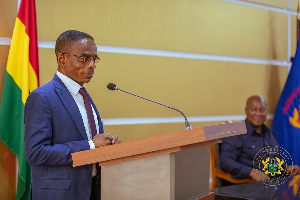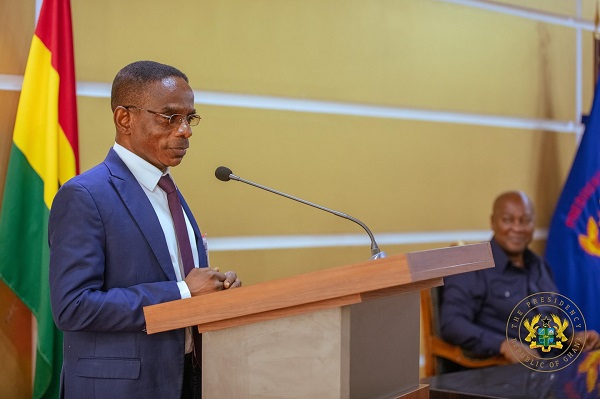 Johnson Akuamoah Asiedu is the Auditor-General
Johnson Akuamoah Asiedu is the Auditor-General
The Auditor-General Report has revealed that the government exceeded its 2024 public expenditure by GH¢64.9 billion, with total actual spending reaching GH¢311.01 billion, far above the approved budget of GH¢246.15 billion.
The report highlights major deviations across key expenditure lines, notably in Compensation of Employees and Exchange Difference costs.
According to the findings, the government spent GH¢74.4 billion on wages, salaries, and allowances amounting to GH¢8.1 billion more than the budgeted GH¢66.3 billion, representing a 12.24% overspend.
This increase was attributed to new hires and unanticipated salary adjustments across various public sector institutions.
Exchange difference costs, which had no allocation in the 2024 budget, soared to GH¢85.5 billion.
These costs were linked to currency depreciation and the impact of foreign-denominated debt payments.
Meanwhile, some categories saw significant underspending. Goods and services amounted to GH¢50.4 billion, falling short of the GH¢96 billion allocation by nearly GH¢45.6 billion.
Finance costs were also lower than expected, totaling GH¢48.1 billion at 13.94%, a reduction from the budgeted GH¢55.9 billion.
Specialised expenses, such as sector-specific projects and interventions, rose sharply, with actual spending reaching GH¢22.1 billion more than GH¢14.5 billion above budget, reflecting a 190.9% overspend.
Social benefits, originally projected at GH¢215 million, ended up costing the state GH¢1.3 billion overshooting the budget by over 500%.
The Auditor-General Report also added to growing concerns about fiscal discipline in 2024, especially in the lead-up to the 2024 election cycle.
SP/AE
How Virtual Reality is enhancing business and customer experience
